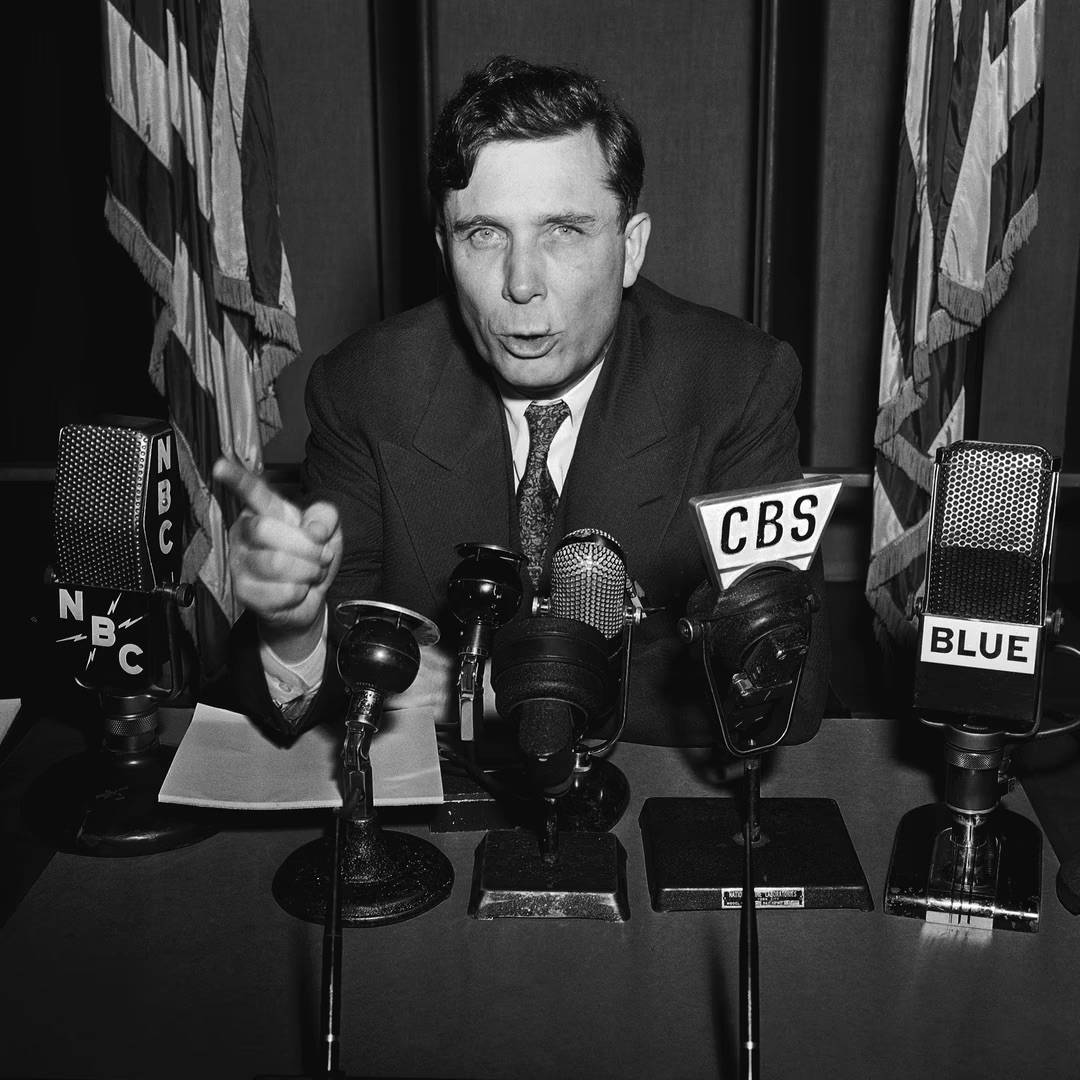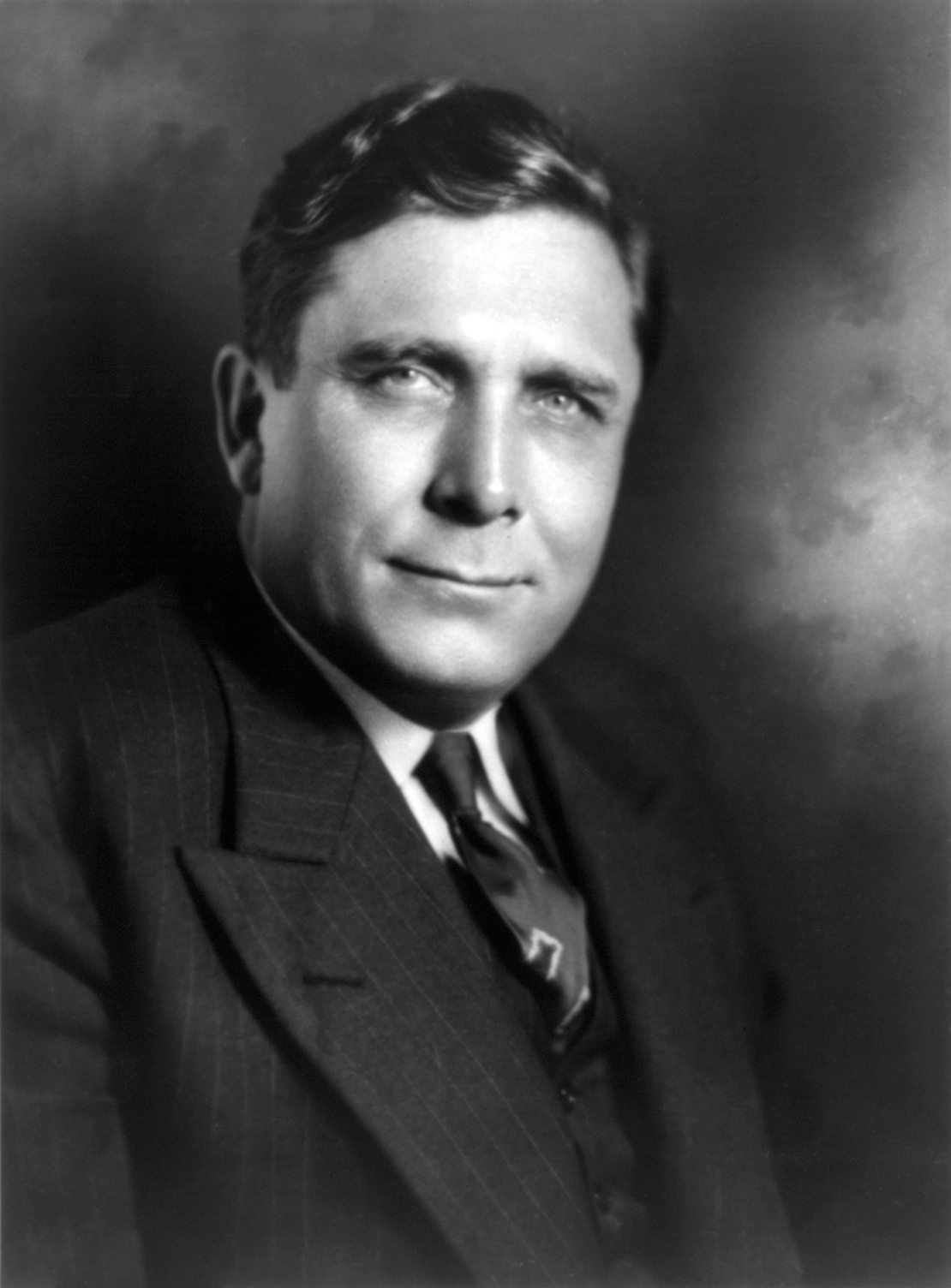Loyal Opposition
Wendell L. Willkie (Wendell Lewis Willkie)
Historical Context
The 1940 presidential election took place as World War II raged in Europe. Franklin Roosevelt was seeking an unprecedented third term, breaking the two-term tradition established by George Washington. The Republican Party nominated Wendell Willkie, a businessman and former Democrat who had never held elected office.
The campaign was intense and personal. Willkie challenged Roosevelt's domestic policies and warned against excessive government power. Both candidates promised to keep America out of war unless attacked. The election drew nearly 50 million voters, the highest turnout in American history to that point.
Roosevelt won with 27.3 million votes to Willkie's 22.3 million. The electoral vote was 449 to 82. Despite the loss, Willkie received more votes than any previous Republican candidate. The election showed that democracy could function during wartime and international crisis.
Six days after the election, on November 11, 1940 (Armistice Day), Willkie delivered this radio address to the nation. The speech was broadcast on all major radio networks and reached millions of Americans. It came at a time when some suggested the opposition should unite behind Roosevelt for national security reasons.

The Speech
...[] People of America: Twenty-two years ago today a great conflict raging on the battlefields of Europe came to an end. The guns were silent. A new era of peace began and for that era the people of our Western World--our democratic world--held the highest hopes. Those hopes have not been fulfilled. The democratic way of life did not become stronger--it became weaker. The spirit of constitutional government flickered like a dying lamp. And within the last year or so the light from that lamp has disappeared entirely upon the Continent of Europe.
We in America watched darkness fall upon Europe. And as we watched there approached an important time for us--the national election of 1940. In that election, and in our attitudes after that election, the rest of the world would see an example of democracy in action, an example of a great people faithful to their Constitution and to their elected representatives.
The campaign preceding this election stirred us deeply. Millions upon millions of us who had never been active in politics took part in it. The people flocked to the polling places in greater numbers than ever before in history. Nearly fifty million people exercised on Nov. 5 the right of the franchise--the precious right which we inherited from our forefathers, and which we must cherish and pass on to future generations.
We have elected Franklin Roosevelt President. He is your President. He is my President. We all of us owe him the respect due to his high office. We give him that respect. We will support him with our best efforts for our country. And we pray that God may guide his hand during the next four years in the supreme task of administering the affairs of the people.
It is a fundamental principle of the democratic system that the majority rules. The function of the minority, however, is equally fundamental. It is about the function of that minority--22,000,000 people, nearly half of our electorate--that I wish to talk to you tonight.
A vital element in the balanced operation of democracy is a strong, alert and watchful opposition. That is our task for the next four years. We must constitute ourselves a vigorous, loyal and public-spirited opposition party.
It has been suggested that in order to present a united front to a threatening world the minority should now surrender its convictions and join the majority. This would mean that in the United States of America there would be only one dominant party--only one economic philosophy--only one political philosophy of life. This is a totalitarian idea--it is a slave idea--it must be rejected utterly.
[The speech continues with Willkie explaining the role of opposition in democracy, his policy positions, and his commitment to constructive criticism. He outlines five specific steps for government action on economic policy and concludes with a call for unity in defense while maintaining democratic principles.]
Meanwhile, let us be proud, let us be happy in the fight that we have made. We have brought our cause to the attention of the world. Millions have welcomed it. As time goes on millions more will find in it the hope that they are looking for. We can go on from here with the words of Abraham Lincoln in our hearts: "With malice toward none, with charity for all, with firmness in the right as God gives us to see the right, let us finish the work we are in, to bind up the nation's wounds... to do all which may achieve and cherish a just and lasting peace among ourselves and with all nations."
Good night. And God bless and keep every one of you.
Read the Full Speech
Key Quotes
"A vital element in the balanced operation of democracy is a strong, alert and watchful opposition. That is our task for the next four years."
Willkie's definition of the opposition party's role in democracy
"He is your President. He is my President. We all of us owe him the respect due to his high office."
Willkie's gracious acceptance of Roosevelt's victory
"This is a totalitarian idea--it is a slave idea--it must be rejected utterly."
Willkie's rejection of one-party unity during wartime
"We must constitute ourselves a vigorous, loyal and public-spirited opposition party."
Willkie's call for active but responsible opposition
"Ours must not be an opposition against--it must be an opposition for--an opposition for a strong America, a productive America."
Willkie's emphasis on constructive rather than destructive opposition
Analysis & Significance
Willkie's speech established the modern concept of "loyal opposition" in American politics. The speech addressed the balance between supporting the country during wartime and maintaining democratic opposition to government policies. This was particularly important given the international crisis and calls for national unity.
The speech's structure moved from accepting defeat graciously to defining the role of the minority party. Willkie acknowledged Roosevelt as "your President" and "my President," emphasizing respect for democratic outcomes. He then argued that abandoning opposition would create a totalitarian system.
Willkie distinguished between different types of unity. He rejected the idea that unity required surrendering political convictions. Instead, he argued that democracy required ongoing debate and criticism. He compared this to the British system, where opposition continued even during wartime.
The speech included specific policy proposals, particularly regarding government spending and the national debt. Willkie warned about inflation risks and proposed five steps for economic policy. This showed that opposition could be constructive rather than simply critical.
Willkie's tone throughout was respectful but firm. He avoided personal attacks on Roosevelt while maintaining clear policy differences. The speech ended by quoting Lincoln's Second Inaugural Address, connecting his message to American democratic traditions.
Enduring Legacy
The speech helped establish the modern role of the opposition party in American politics. Willkie's concept of "loyal opposition" became a standard part of American political discourse. The idea that the minority party should criticize policies while supporting the country became widely accepted.
Willkie's approach influenced how later defeated presidential candidates behaved after elections. His gracious acceptance of defeat while maintaining policy opposition became a model for democratic transitions. This was particularly important during World War II when national security concerns were high.
The speech contributed to wartime political debate in America. Willkie continued to support aid to Britain while criticizing domestic policies. This showed that foreign policy consensus could coexist with domestic political opposition. His later book "One World" expanded on internationalist themes.
The Republican Party used Willkie's framework to oppose New Deal policies during the war while supporting the military effort. This allowed the party to maintain its identity during a period of Democratic dominance. The approach helped preserve the two-party system during the crisis.
Willkie's emphasis on constructive opposition influenced post-war American politics. The idea that opposition parties should propose alternatives rather than simply criticize became part of American political culture. This approach continues to be cited in discussions about the role of political opposition.

About the Speaker
Wendell Lewis Willkie was born in Indiana in 1892. He worked as a lawyer and businessman before entering politics. Willkie was originally a Democrat but switched to the Republican Party in the late 1930s over his opposition to New Deal policies.
As president of Commonwealth & Southern Corporation, a utility holding company, Willkie fought against government competition in the electric power industry. This brought him national attention and established him as a critic of Roosevelt's policies.
Willkie had never run for office before seeking the Republican presidential nomination in 1940. His nomination was considered surprising since he defeated more experienced politicians. He was known for his informal speaking style and willingness to challenge conventional Republican positions on some issues.
View all speeches by Wendell L. Willkie